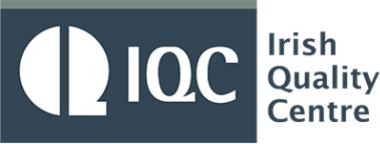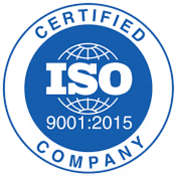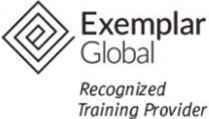PR 357: OHSMS ISO 45001:2018 Lead Auditor 5 days Course ID: 2374 Virtual Classroom 8 Delegates Maximum per training
7,8 & 11,12,13 Apr 2022 ATP Number:11800057
€1,195 Price includes training, all training materials, pre-course study materials, IRCA registration and refreshments during the training where applicable. THERE ARE NO HIDDEN FEES AT IQC. Need a quote for In-house Training email us today info@iqc.ie Prerequisites: Please note that participants attending the Lead Auditor course are expected to have the above prior knowledge of safety management principles and concepts, and the basic requirements of the relevant safety standard. IQC will provide a “Pre-course” pack to all delegates approximately 10 days before the training commences however if you are new to ISO 45001 please consider one of our Fundamental and Foundation training courses.
Introduction
It is essential that personnel involved in the development, implementation and auditing of Occupational Health and Safety (OHS) Management Systems understand and can audit against standards such as ISO 45001.
It is also necessary to be able to liaise appropriately with Certification Bodies and to represent your organisation when auditing suppliers. IRCA certified auditors conduct audits in a professional, thorough and fair manner against regulatory or OHS Management Standards.
This intensive 5-day CQI_IRCA* certified course will evaluate and focus on the requirements of ISO 45001 in detail and will demonstrate good auditing practice that reflects best in class.
Learn how to Effectively perform internal, supplier and third party audits of OHS management systems. On completion of the examination and continuous assessment delegates will receive a certificate of achievement that satisfies the formal training requirement for certification as a CQI/IRCA auditor or lead auditor.
* (Chartered Quality Institute and International Register of Certificated Auditors)
Who should attend?
OHS Department Personnel.
Lead Auditors / Internal auditors.
OHS Managers and those with internal auditing / self inspection, responsibilities across all departments.
Senior Departmental Management and Area/Process Owners.
Those who want to pursue a career as an Auditor/Lead Auditor.
Anyone responsible for or aspiring to conduct internal OHS Management System audits.
Cancellations
Places cancelled within 10 working days of commencement must be paid in full. Substitutions may be made at any time at no additional charge.

Course Objectives:
On completion of this course, you will be able to:
Describe the purpose of an OHS management system and explain the business and social benefits of having and continuously improving OHS performance.
Explain the purpose, content and interrelationship of ISO 9000, ISO 45001, and ISO 19011.
Interpret requirements of ISO 45001 in the context of an audit.
Manage an audit programme.
Understand the different types of audits.
Describe the roles and responsibilities of auditors and lead auditors.
Plan and conduct an audit in accordance with ISO 19011 and ISO 17021-1.
Gather objective evidence, through effective interviewing, observation, sampling and note taking.
Analyse and interpret information in order to determine effectiveness, conformance with requirements and areas for improvement.
Report the audit, including writing valid, factual and value-adding non-conformity reports.
Undertake audit follow-up activities, including evaluating the effectiveness of corrective action.
Professionally liaise with external auditors.
Course Itinerary (Summary)
Fundamentals of Occupational Safety and Safety Management Systems and Aligning ISO 45001 to core business objectives.
Using Process Management to manage and improve the business.
Establishing Key Performance Indicators (KPI’s) and Measuring process performance.
Introduction to Quality Auditing.
Planning the audit programme.
Scheduling audit programme.
Selecting internal and external auditors.
Audit preparation and looking at the critical success factors for your organisation.
Understanding the organisation and its key processes.
Using Checklists.
The Audit Lifecycle.
Participants carry out either a live audit in an organisation or a detailed virtual audit.
Guidelines for productive Opening and Closing meetings.
Carrying out the audit.
Objective Evidence.
Audit findings and Classification.
Writing the Audit Report.
Corrective action and effectiveness.
How to deal with external auditors.





